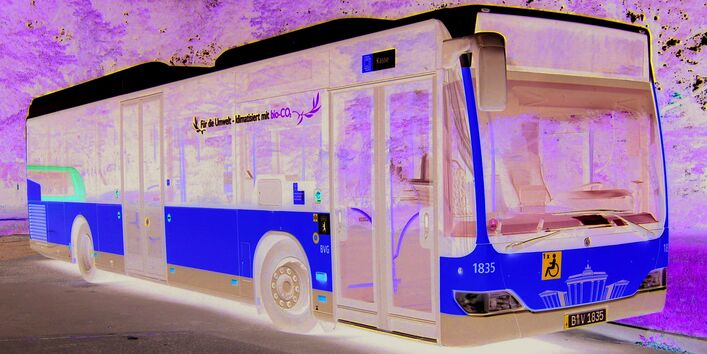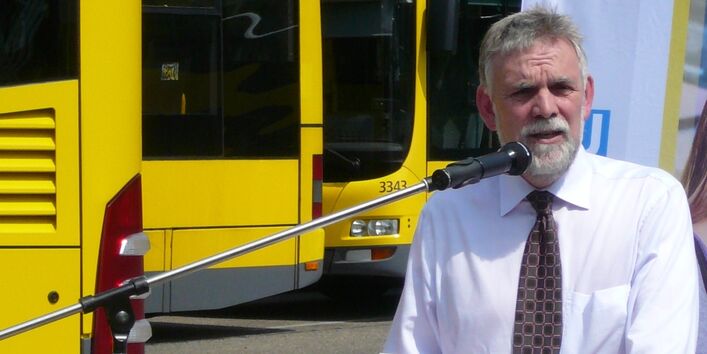Mobile air conditioning for buses
New coaches are normally air conditioned. Increasing numbers of city and intercity buses also got mobile air conditioning. In 1993, the proportion of city buses with air conditioning was only five percent, whereas today the rate is 95 percent, that means almost all buses have air-conditioning.
Mobile air conditioning systems in buses are not hermetically sealed, hence during the bus’s lifetime considerably amounts of the refrigerant emit to the atmosphere and thus contribute to the greenhouse effect. On average, mobile air conditioning systems in buses lose around 15 percent of their refrigerant annually. In 2020, some 108 tons of R134a refrigerant were released into the atmosphere by buses in Germany. This equates to emissions of 154,000 tons carbon dioxide per year. For the purpose of illustration, this is about the same amount as the carbon dioxide tail pipe emissions of 62,000 passenger cars.
Berlin city buses with CO2 mobile air conditioning
Since July 2010 seven Berlin city buses operated by Berliner Verkehrsbetriebe (BVG), Berlins’ public transport company, have been using air conditioners with natural CO2 refrigerant since July 2010. Being the world’s first company to operate a bus fleet equipped with climate friendly CO2 mobile air conditioning makes BVG an international pioneer in this domain. CO2 replaces the currently used refrigerant R134a, a greenhouse gas harmful for the climate but still allowed in buses.
Now several German and some European bus operators use buses with CO2-mobile air conditioning. Hybrid buses can also be equipped with CO2-mobile air conditioning. Electric buses with mobile air conditioning and heat pumps based on the refrigerant CO2 are available since autumn 2018. As of 2020, the German eco-label "Blue Angel" (DE-UZ 59b) can be awarded only to buses with mobile air conditioning using non-halogenated refrigerants like CO2.

